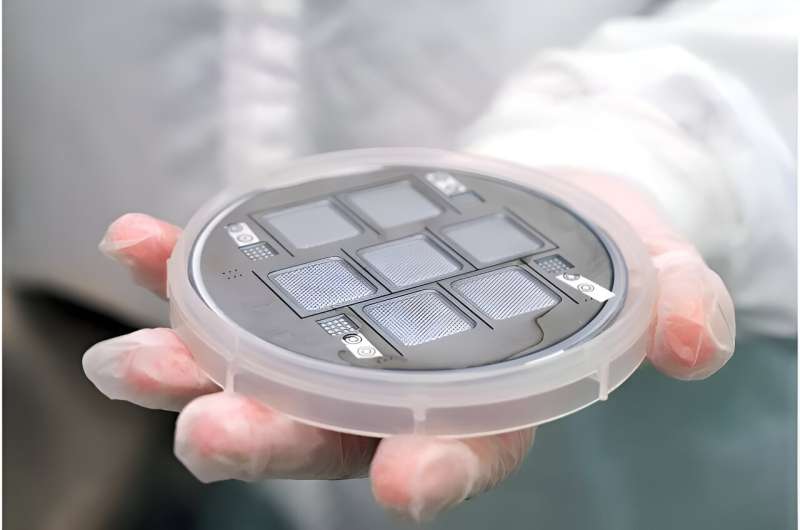
Rocket propulsion technology has progressed leaps and bounds since the first weaponized rockets of the Chinese and Mongolian empires. They were nothing more than rocket-powered arrows and spears but they set the foundations for our exploration of space. Liquid propellant, ion engines and solar sails have all hit the headlines as we strive for more efficient methods of travel but a team has taken the next leap with a palm-sized thruster system that could boost future tiny spacecraft across the gulf of space.
Palm-sized thrusters are quite different from the gargantuan rockets we are used to, for example the Saturn V rocket that took the Apollo astronauts to the moon that stood 110 m tall. The difference for the ATHENA thrusters is that they are designed for maneuvering and propelling cubesats and small satellites once they are in space rather than propelling rockets from the surface of the Earth.
The team led by Daniel Perez Grande, CEO and Co-Founder of IENAI Spain, have called their palm-sized thruster “Athena,” not the most catchy title but neatly represents what it does—the Adaptable, THruster based on Electrospray powered NAnotechnology. The technology has been developed for ESA and, following a successful design stage and, if all goes to plan, a prototype will be available by the end of 2024.
The technology relies upon something known as an electrospray which has previously been used in mass spectrometry but has now found its way into space. Each thruster has seven emitter arrays that are etched onto silicon wafers, and each houses 500 pinhole emitters. Electrically charged particles from a conductive salt are sprayed out, propelled via an electrostatic field to produce the maximum amount of thrust, which can be of the order of 20 km per second. The concept is very similar to the ion propulsion systems already in use but on a much smaller scale.
Like its ion and liquid propellant cousins, the thruster is highly adjustable and can be reconfigured in flight. The thrusters are eco-friendly too since the propellant is a non-toxic liquid and requires no pressurized storage tanks. The small size of the thrusters means they can be grouped together in any required configuration with a total of six required to fit the face of a typical 10-cm cubesat and can be clustered together on satellites and probes of up to 50 kg mass. The team is hoping they can develop the technology further to work on craft up to 300 kg.
Space technology, like most other areas of technology, is getting smaller and smaller. In order to achieve this though, the propulsion systems also need to shrink, and this is potentially a more challenging task. ATEHNA looks to be a promising development but ESA and their partners are working on two other thruster systems based upon electrospray technology, all of which seem to be bringing promising results.
Citation:
ESA’s tiny pinhole thruster is ready for production (2024, January 2)
retrieved 2 January 2024
from https://phys.org/news/2024-01-esa-tiny-pinhole-thruster-ready.html
This document is subject to copyright. Apart from any fair dealing for the purpose of private study or research, no
part may be reproduced without the written permission. The content is provided for information purposes only.

